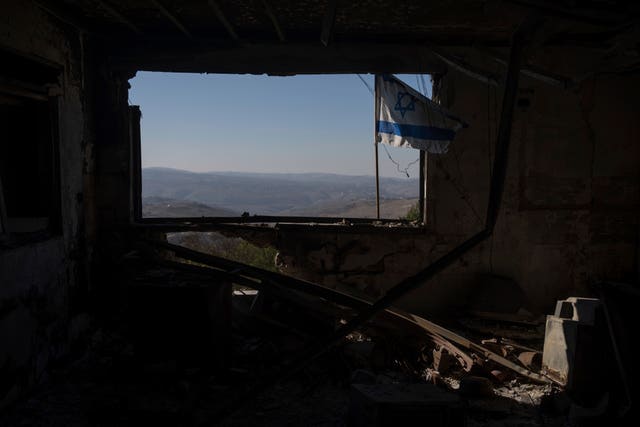
Clive Bull 1am - 4am
3 December 2024, 09:14

The strikes came after the Lebanese militant group fired a volley of projectiles as a warning over what it said were Israeli truce violations.
Israel has unleashed its largest wave of air strikes across Lebanon since agreeing to a ceasefire with Hezbollah last week, killing at least 11 people on Monday after the Lebanese militant group fired a volley of projectiles as a warning over what it said were Israeli truce violations.
The projectiles were apparently the first time that Hezbollah had taken aim at Israeli forces after the 60-day ceasefire went into effect last Wednesday.
The increasingly fragile truce aimed to end more than a year of war between Hezbollah and Israel – part of a wider regional conflict sparked by the devastating Israel-Hamas war in Gaza.

Lebanon’s Health Ministry said an Israeli air strike on the southern village of Haris killed five people and injured two others, while another air strike on the village of Tallousa killed four and wounded two.
Israel’s military carried out a string of air strikes late on Monday against what it said were Hezbollah fighters, infrastructure and rocket launchers across Lebanon, in response to Hezbollah firing two projectiles toward Mount Dov – a disputed Israeli-held territory known as Shebaa Farms in Lebanon where the borders of Lebanon, Syria and Israel meet.
Israel said the projectiles fell in open areas and no injuries were reported.
Hezbollah said in a statement that it fired on an Israeli military position in the area as a “defensive and warning response” after what it called “repeated violations” of the ceasefire deal by Israel.
It said complaints to mediators tasked with monitoring the ceasefire “were futile in stopping these violations”.

Before the Hezbollah projectiles, Israeli carried out at least four air strikes and an artillery barrage in southern Lebanon, including a drone strike that killed a person on a motorcycle, according to Lebanese state media.
Another strike killed a corporal in the Lebanese security services.
Israel has said its strikes are in response to unspecified Hezbollah violations, and that under the ceasefire deal it reserves the right to retaliate.
Lebanon’s parliament speaker, Nabih Berri, accused Israel of violating the truce more than 50 times in recent days by launching air strikes, demolishing homes near the border and violating Lebanon’s airspace.
Officials in the US – which along with France helped broker the truce and heads a commission meant to monitor adherence to the deal – played down the significance of Israeli strikes.
White House national security spokesman John Kirby said: “Largely speaking, the ceasefire is holding.”
“We’ve gone from dozens of strikes down to one a day maybe two a day,” he told reporters, referring to Israeli strikes. “We’re going to keep trying and see what we can do to get it down to zero.”
Under the deal, Iran-backed Hezbollah has 60 days to withdraw its fighters and infrastructure from southern Lebanon. During that time, Israeli troops are also to withdraw to their side of the border.